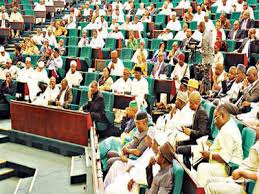The House of Representatives in Nigeria has indefinitely suspended the ongoing debate on the Tax Reforms Bills earlier scheduled for Tuesday this week.
The suspension of the deliberations on the proposed fiscal legislations was sequel to the mounting pressure from the 19 northern states governors and other analysts from the region.
In a memo dated November 30 titled ‘Rescheduling of Special Session on Tax Reform Bills’ and signed by the Clerk of the House of Representatives, Dr Yahaya Danzaria, the suspension of the debate on the tax bills was attributed to the need for further consultations.
Available information indicated that 73 northern lawmakers in the Green Chamber of the National Assembly kicked against the bills for what they described as the unfairness of their provisions,
The memo reads: “I am directed by the House leadership to inform all Honourable Members that the special session, initially scheduled for Tuesday, December 3, 2024, to discuss all the tax reform bills, has been postponed to a later date.
“This rescheduling is due to the need for further and broader consultations with all relevant stakeholders. A new date and venue for the session will be communicated in due course. We regret any inconvenience this may cause and appreciate your understanding.”
The contentious bills comprised the Nigeria Tax Bill 2024, which aims to provide the fiscal framework for taxation in the country; and the Tax Administration Bill, which will provide concise legal framework for all taxes in the country and reduce disputes.
Others are the Nigeria Revenue Service Establishment Bill, which is intended to repeal the Federal Inland Revenue Service Act and establish the Nigeria Revenue Service; and the Joint Revenue Board Establishment Bill, which has among other provisions, the creation a Tax Tribunal and a tax ombudsman, to adjudicate on tax disputes.
Meanwhile, the President Bola Tinubu-led administration has consistently assuaged the fears of the Northerners about the draft fiscal legislations, saying that the provisions are fair and intended to enhance fiscal efficiency in the country to create a win-win situation for all stakeholders in the political economy.
For instance, while reacting to some misgivings about the tax reform bills, the Chairman of the Presidential Committee on Fiscal Policy and Tax Reforms, Mr Taiwo Oyedele, had some weeks back allayed the fears of the Northerners about their perceived negative feelings about the proposals and maintained their compliance with the basic principle of a good tax system – fairness.
He explained: “We share the sentiment expressed by the Northern Governors regarding the inequity inherent in the current model of derivation as a basis for distributing VAT revenue. This issue, in fact, affects many states across all geopolitical zones because the current derivation is mainly determined based on where VAT is remitted, rather than where goods or services are supplied or consumed.
“Our proposal aims to create a fairer system by devising a different form of derivation which takes into account the place of supply or consumption for relevant goods and services whether they are zero rated, exempt or taxable at the standard rate.
“For example, a state that produces food shouldn’t lose out just because its products are VAT-exempt or consumed in other states. The state where the supply originates should be recognised for its contributions. The same principle should apply to services like telecommunications—VAT distribution should reflect where subscribers are located.
“We will collaborate with all stakeholders to address this concern with a view to finding a balanced solution that achieves a win-win outcome for all”, the tax expert assured.






